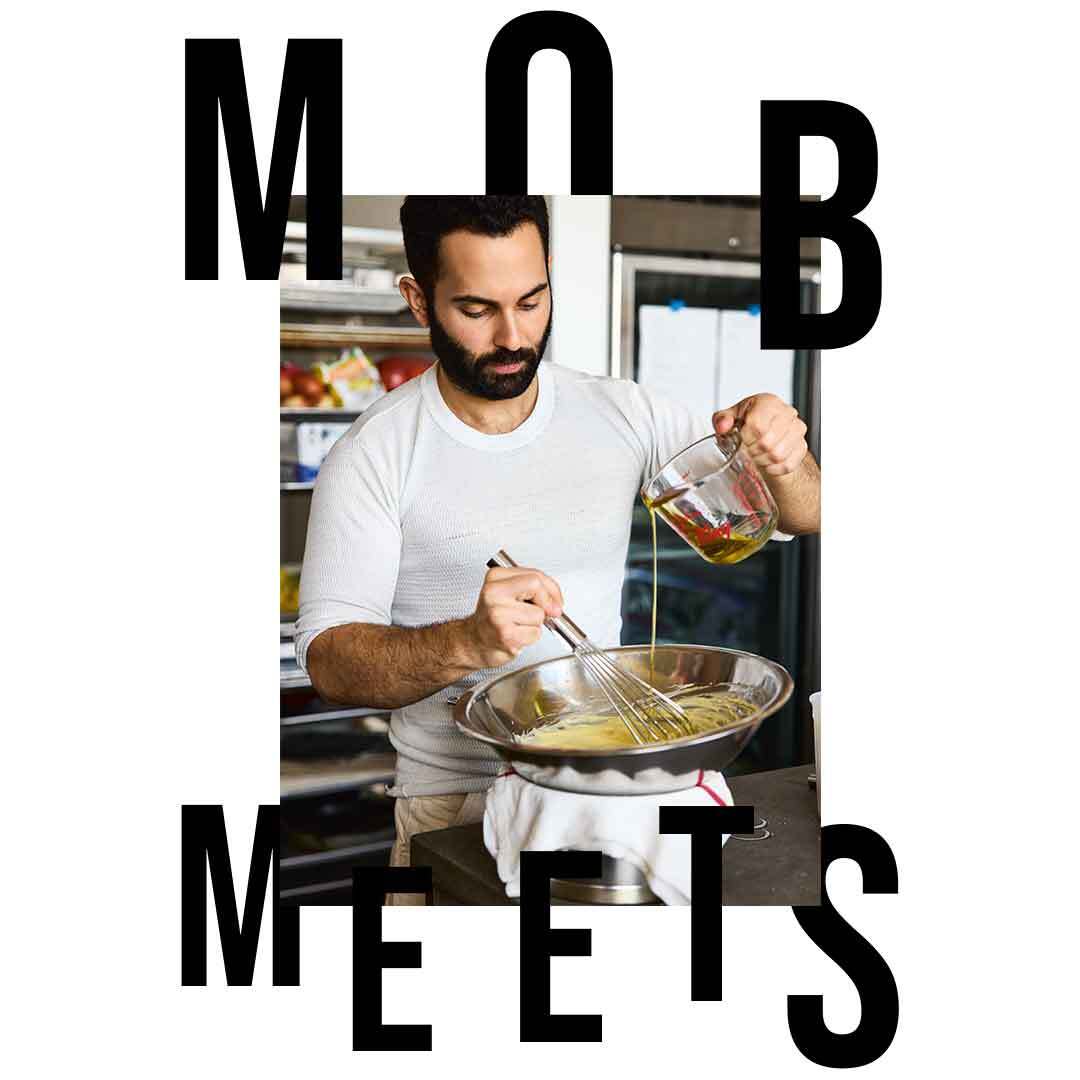"This is maybe a tenth of my book collection," says Andy Baraghani, gesturing towards a bookcase stacked with hardbacks. Speaking to Andy, it becomes immediately obvious that he’s a man obsessed with food. He’s obsessed with the way it tastes, the way it looks, and the nuanced way that each bite of a dish can hit your palate in a different way like hockey players colliding into one another at breakneck speed.
As a former senior food editor at Bon Appétit, Andy has spades of recipe writing experience and understands what it takes to make a dish go the whole nine yards from someone’s Instagram feed to their dinner table. He’s also no stranger to the professional kitchen, having worked the hobs at the iconic Chez Panisse in California as well as at trendy New York outfits like Frej and Corton. His style of cooking is as bold and refreshing as his personality – heavy on the salt and acid, Andy specializes in food that’s more than comfortable working a room and making an excellent first impression.
His new cookbook, The Cook You Want to Be, is filled with 100 killer recipes for everything from caramelised sweet potatoes with browned butter harissa to cauliflower bolognese and Andy’s own personal take on kuku sabzi. Taking inspiration from his Persian heritage and years of experience working in restaurants, Andy Baraghani has crafted a flawless debut that you’re going to be dipping into on weeknights and weekends.
Whether he’s fine-tuning a dish for a dinner party or a step in his meticulous skin-care routine, Andy Baraghani is all about the finer details. That being said, he still hasn’t lost sight of the bigger picture. Which is feeding people with as much delicious food as possible. Here’s what happened when Mob met Andy Baraghani.
